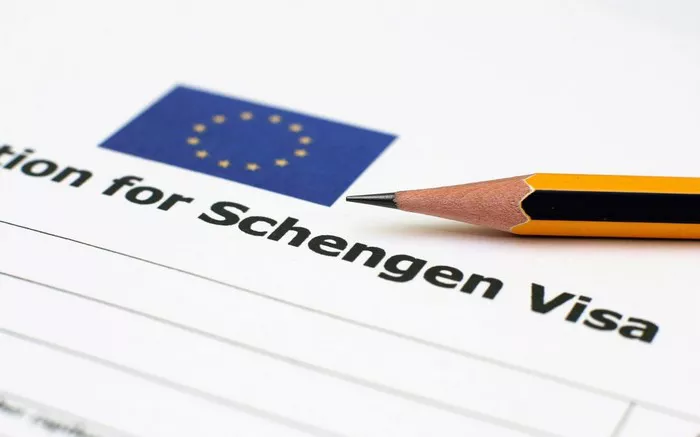When it comes to traveling within the Schengen Area, understanding the different types of visas available is crucial. The Schengen visa allows holders to travel freely within 26 European countries, making it a popular choice for tourists, business travelers, and students alike. However, navigating the various categories of Schengen visas can be complex. In this comprehensive guide, we will delve into the four main types of Schengen visas, outlining their purposes, application requirements, and validity periods.
1. Uniform Schengen Visa (USV)
The Uniform Schengen Visa, commonly abbreviated as USV, is the most sought-after type of visa for short-term stays within the Schengen Area. This visa permits holders to visit any of the 26 Schengen member states for tourism, business, family visits, or other short-term purposes. The USV is further categorized into three subtypes based on the intended duration of stay:
Single-entry USV: As the name suggests, this visa allows the holder to enter the Schengen Area once for a specified period, usually up to 90 days within a 180-day period. Once the traveler exits the Schengen Area, the visa becomes invalid.
Double-entry USV: Similar to the single-entry visa, the double-entry USV permits two entries into the Schengen Area within the designated validity period. Each stay is typically limited to 90 days within a 180-day period.
Multiple-entry USV: This type of visa provides the greatest flexibility, allowing the holder to enter and exit the Schengen Area multiple times within the visa’s validity period. Holders can stay for up to 90 days within a 180-day period, but the total duration of stays cannot exceed 90 days in any 180-day period.
Application Requirements for USV:
Completed visa application form
Valid passport with at least two blank pages
Passport-sized photos meeting Schengen visa photo requirements
Proof of travel medical insurance covering at least €30,000 for medical expenses and repatriation
Proof of accommodation for the entire duration of stay
Travel itinerary or round-trip flight reservation
Sufficient financial means to cover the expenses during the stay
Visa application fee payment
2. Limited Territorial Validity Visa (LTV)
The Limited Territorial Validity Visa, or LTV, is a specialized type of Schengen visa issued to individuals who are only allowed to enter and stay in specific Schengen member states, rather than the entire Schengen Area. This visa is typically granted for humanitarian reasons or due to international obligations. The LTV is often used in cases where an individual is prohibited from entering certain Schengen countries due to legal or political reasons, such as ongoing conflicts or security concerns.
Purposes of LTV:
Humanitarian reasons, such as medical treatment or family emergencies
International obligations, including participation in specific events or conferences
Other exceptional circumstances warranting limited travel within the Schengen Area
Application Requirements for LTV:
Justification for the limited territorial validity
Supporting documents outlining the specific purpose of travel and the need for restricted access
Compliance with the standard Schengen visa application requirements
3. National Visas
Unlike the Uniform Schengen Visa, which allows travel within the entire Schengen Area, National Visas are issued by individual Schengen member states for long-term stays within their respective territories. These visas are typically categorized into two main types:
National Long-Stay Visa (Type D): This visa is intended for individuals planning to stay in a specific Schengen member state for longer than 90 days, such as for employment, study, family reunification, or other long-term purposes. Holders of a National Long-Stay Visa may be required to apply for a residence permit upon arrival in the destination country.
National Limited-Stay Visa: Some Schengen member states may issue visas for stays of less than 90 days for specific purposes, such as seasonal work, internship programs, or short-term academic courses. These visas are subject to the regulations of the issuing country and may have restrictions on employment and residency rights.
Application Requirements for National Visas:
Completed visa application form specific to the issuing country
Valid passport with sufficient blank pages
Passport-sized photos meeting the requirements of the issuing country
Purpose of travel documentation, such as employment contract, acceptance letter from an educational institution, or proof of family relationship
Proof of sufficient financial means to support oneself during the stay
Compliance with any additional requirements imposed by the issuing country
4. Airport Transit Visa (ATV)
The Airport Transit Visa, or ATV, is a Schengen visa category designed for travelers transiting through the international airports located within the Schengen Area without entering its territory. This visa is req
uired for nationals of certain countries who need to change planes at a Schengen airport while en route to their final destination outside the Schengen Area. The ATV allows travelers to remain in the international transit area of the airport for a limited period, typically not exceeding 24 or 48 hours, depending on the specific circumstances.
Purpose of ATV:
Facilitating international air travel for passengers transiting through Schengen airports
Ensuring compliance with immigration regulations for individuals who do not require a full Schengen visa but need to pass through Schengen territory during their journey
Application Requirements for ATV:
Proof of onward travel, such as a confirmed flight reservation to a destination outside the Schengen Area
Visa for the final destination country, if required
Compliance with any additional requirements imposed by the Schengen member states
Conclusion
In conclusion, the Schengen visa system offers various options to accommodate the diverse travel needs of individuals wishing to visit Europe for short-term or long-term stays. Whether it’s for tourism, business, study, or transit purposes, understanding the different types of Schengen visas and their respective application requirements is essential for a smooth and hassle-free travel experience within the Schengen Area.


